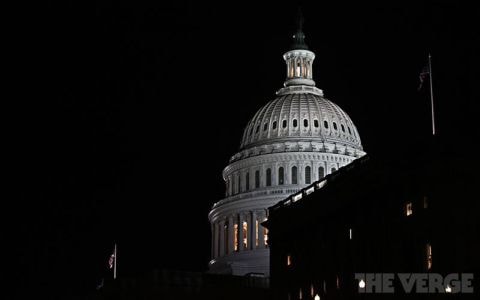NSA must stop collecting information of US citizens from the night of May 31
The decision was made after the US Senate refused to extend the National Security Agency's (NSA) information collection program.
However, CIA Director John Brennan has warned that allowing the end of key surveillance programs could increase terrorist threats.
 |
| The US Congress decided to temporarily suspend all NSA activities of collecting information on US citizens (Photo: The Verge) |
In the Senate vote on the night of May 31, the USA Freedom Act, which aims to limit the NSA's power to massively collect and store metadata related to US citizens, received only 57 votes in favor, which is 3 votes short of passing.
However, the Senate also voted overwhelmingly in favor of a measure that would allow lawmakers to begin discussing the bill before a vote midweek, meaning the NSA's call collection program will be temporarily suspended for the next few days.
In addition, two other programs that allowed eavesdropping on terrorist suspects, changing mobile phone numbers everywhere and tracking terrorist suspects in "lone wolf" attacks were also suspended.
This is the second time the US Senate has considered the Freedom Act, after the draft was passed by the House of Representatives and supported by the White House. The Freedom Act would extend the NSA's current surveillance program for six months while it sets up a new, more targeted information collection system. The NSA would also have to seek a court order to access specific calls from the huge data stores stored by media companies.
The Freedom Act would replace three key surveillance provisions in the USA Patriot Act, which was signed into law by former Republican President George W. Bush after the September 11, 2001, terrorist attacks on the United States.
Later, when Democratic President Barack Obama took office, he renewed and changed some parts of the Patriot Act, according to which, the NSA was still allowed to collect and search phone calls in the US but not the content of these calls.
A 2013 report released by the Obama administration concluded that the phone-recording program was not essential to preventing any terrorist attacks.
Security officials counter that the program provides vital data that, when combined with other intelligence, could prevent attacks.
The renewal or reform of the NSA’s current surveillance programs has stalled in the Senate largely because of disagreements within the Republican Party, which holds majorities in both houses of Congress. Liberals want to end the programs altogether, while security hawks want to preserve and extend them.
Democratic Senator Patrick Leahy called for compromise to pass the bill: “The Freedom Act can create a bipartisan compromise that protects the privacy of Americans and keeps our country safe. It ends the phone collection program. It is a reform program that limits government surveillance. It increases transparency and also promotes greater accountability and oversight, which the Patriot Act did not do.”
Meanwhile, Republican Senator Dan Coats expressed concern that the surveillance program was not renewed at this sensitive time, when the threat from terrorist extremism is clearly increasing.
Central Intelligence Agency Director Brennan warned that groups like the Islamic State (IS) are “very cautiously” monitoring this development in the US and “looking for loopholes to operate.” According to Mr. Brennan, the program to collect calls of millions of Americans not related to terrorism is not an abuse of civil liberties but is only aimed at protecting citizens./.
According to VOV.VN
